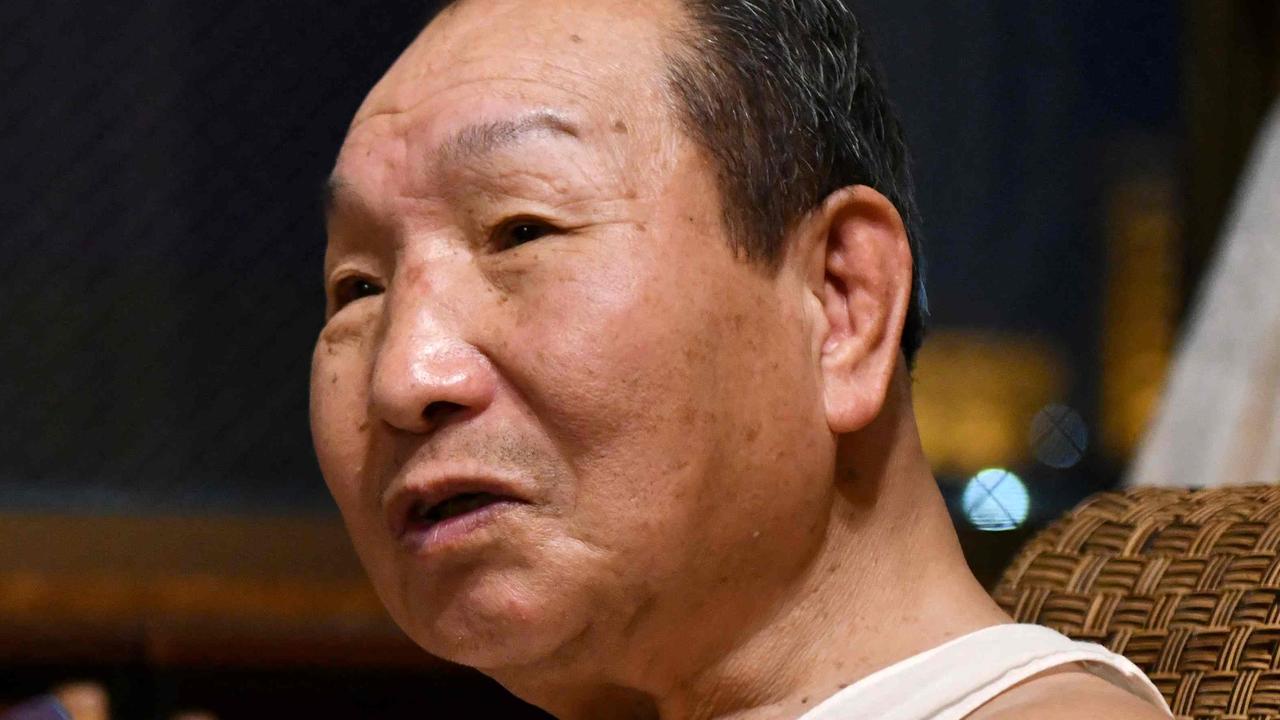It’s a case that has all the hallmarks of a Hollywood movie.
A boxing star, a brutal, bloody murder and the world’s longest-serving death row inmate.
It’s been nearly six decades since Japanese man Iwao Hakamada, 87, was convicted of murder and sentenced to death for robbing and murdering his boss, the man’s wife and their two teenage children.
This week, Tokyo’s High Court took the unprecedented step of ordering a retrial for Hakamada.
His sister Hideko Hakamada, 90, emotionally told reporters that she had been “waiting for this day for 57 years”.
“Finally a weight has been lifted from my shoulders,” she said.
Hakamada spent nearly five decades on death row, and was certified the world’s longest-serving death row inmate, before a lower court ordered a retrial and freed him while his case proceeded.
Twists and turns
Hakamada initially denied the accusations of murder but later confessed after what he subsequently claimed was a brutal police interrogation that included beatings.
His attempts to retract the confession were in vain and his verdict was confirmed by the Supreme Court in 1980.
After a prolonged battle, a district court in the central city of Shizuoka granted a retrial in 2014, finding investigators could have planted evidence.
But Tokyo’s High Court overturned the lower court ruling four years later, and the case was sent to the Supreme Court on appeal.
There, judges ruled in 2020 that the Tokyo High Court must reconsider its decision.
Key evidence bungled
One key piece of evidence used to convict him was a set of bloodstained clothes that emerged more than a year after the crime.
Supporters say the clothes did not fit him and the bloodstains were too vivid given the time elapsed.
DNA tests found no link between Hakamada, the clothes and the blood but the High Court rejected the testing methods.
National broadcaster NHK said the court’s presiding judge Fumio Daizen cast doubt on the credibility of the clothes as evidence.
“There is no evidence other than the clothes that could determine Hakamada was the perpetrator, so it is clear that reasonable doubt arises,” NHK quoted him as saying.
Death penalty fight
Japan is the only major industrialised democracy other than the United States to retain capital punishment, which is always carried out by hanging.
The death penalty still enjoys broad public support and debate on the issue is rare.
Supporters say nearly 50 years of detention, mostly in solitary confinement with the ever-present threat of execution, has taken an immense toll on Hakamada’s mental health.
He told AFP in 2018 he felt he was “fighting a bout every day”.
His sister Hideko told a news conference later on Monday she does not talk about the trials with him.
“I will only tell him to rest assured, because we got a good result,” she said. “Now, I just need to make sure I can see the retrial begin.”
The process for a retrial could take years if a special appeal is filed, however, and lawyers have been protesting against this system.
Rights group Amnesty International welcomed the decision as a “long-overdue chance to deliver some justice”.
“Hakamada’s conviction was based on a forced ‘confession’ and there are serious doubts about the other evidence used against him,” said Hideaki Nakagawa, director of Amnesty International Japan.
Hakamada is a former professional boxer who was at one time ranked sixth in Japan in the featherweight category.
He turned professional in 1957 at the age of 21 and later married a cabaret dancer with whom he had one son.
But in 1962, Hakamada suffered a knee injury that ended his boxing career.
Then in his 30s, he opened a bar but it do not do well. His marriage also broke down.
More Coverage
Deep in debt, in 1965, he met Fumio Hashiguchi, the owner of a miso (soy paste) factory where he got a job, and the man, and his family, he would later be accused of murdering.
– with AFP

IL PRIMO ECOMMERCE SPECIALIZZATO IN DELIZIE AL TARTUFO E CAVIALE – CAVIAREAT.COM
